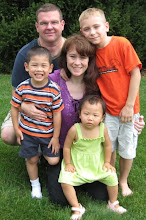 St. Augustine says: "'Angel' is the name of the office, not of their nature. If you seek the name of their nature, it is 'spirit'; if you seek the name of their office, it is 'angel': from what they are, 'spirit,' from what they do, 'angel.'" With their whole beings the angels are servants and messengers of God. Because they "always behold the face of my Father who is in Heaven" they are the "mighty ones who do His word, hearkening to the voice of His word." (CCC 329)
St. Augustine says: "'Angel' is the name of the office, not of their nature. If you seek the name of their nature, it is 'spirit'; if you seek the name of their office, it is 'angel': from what they are, 'spirit,' from what they do, 'angel.'" With their whole beings the angels are servants and messengers of God. Because they "always behold the face of my Father who is in Heaven" they are the "mighty ones who do His word, hearkening to the voice of His word." (CCC 329)
As good as It's A Wonderful Life is, it imparts an incorrect understanding of angels. Angels are not what becomes of men when they die and go to Heaven. Angels are a separate creature created by God to be his heavenly messengers. Among the many examples in Scripture, we can see that they closed the earthly paradise (Gen 3:24), protected Lot (Gen 19:15), saved Hagar and her child (Gen 21:17), stayed Abraham's hand (Gen 22:12), led the People of God (Exodus 23:23), assisted the prophets (Judges 6:11; Isaiah 6:6; 1 Kings 19:5), and announced the birth of Christ and His precursor (Luke 1:19, 26; Luke 2:13-14) . While the creation of angels are not explicitly stated in the Bible, their existence is. The Church proclaims that angels were created prior to man in the fourth Lateran Council (1). Since they do not have corporeal bodies like us, their response to God's love did not require time and reflection to grow and mature. As soon as they were created and received grace, they had the opportunity to respond to God's love and thus be welcomed into bliss (2). Tradition also tells us that some of these spiritual creatures rebelled against God when they learned that their role included serving mankind. The leader of these fallen spirits was Satan, who was the tempter in the garden.
While the creation of angels are not explicitly stated in the Bible, their existence is. The Church proclaims that angels were created prior to man in the fourth Lateran Council (1). Since they do not have corporeal bodies like us, their response to God's love did not require time and reflection to grow and mature. As soon as they were created and received grace, they had the opportunity to respond to God's love and thus be welcomed into bliss (2). Tradition also tells us that some of these spiritual creatures rebelled against God when they learned that their role included serving mankind. The leader of these fallen spirits was Satan, who was the tempter in the garden.
From "On the Celestial Hierarchies" authored by St Dionysius, we have a listing the hierarchy of the angelic ranks in order of their proximity to God: Seraphim (Isaiah 6:2), Cherubim (Numbers 7:89), Thrones (1 Col 1:16), Dominions (1 Col 1:16), Virtues (Eph 1:21), Powers (1 Col 1:16), Principalities (1 Col 1:16), Archangels (1 Thess 4:15), and Angels.
The general doctrine that the angels are our appointed guardians is considered to be a point of faith, but that each individual member of the human race has his own individual guardian angel is not of faith. (3) However, several doctors of the Church taught that the angels were indeed our guardians and in the Gospels we find some support: "See that you do not despise one of these little ones, for I say to you that their angels in heaven always look upon the face of my heavenly Father" (Matt 18:10).
While angels are a unique creation of God in that they are purely spiritual, man is equally unique in that among all of God's creation only humans are both spiritual and corporeal (CCC 327). Just as Jesus ascended bodily into Heaven, we believe that upon our final judgment our glorified bodies will be resurrected and joined once again with our spiritual nature, and thus we will not be angels, but sons of God in eternal communion with Him. All I can say to that is "Alleluia!" for I am not having much success with this non-glorified body I've been given here on Earth!
believe that upon our final judgment our glorified bodies will be resurrected and joined once again with our spiritual nature, and thus we will not be angels, but sons of God in eternal communion with Him. All I can say to that is "Alleluia!" for I am not having much success with this non-glorified body I've been given here on Earth!
Sorry Clarence, but there's no need to listen for the ring of Zuzu Bailey's bell. Her teacher was mistaken.
Monday, January 14, 2008
Not Such A "Little Angel" After All
Subscribe to:
Post Comments (Atom)

No comments:
Post a Comment